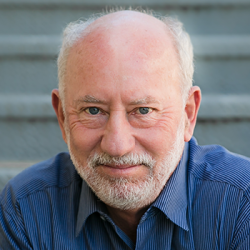
You might have heard it too, or said it yourself…
“We did a PBL on the Vietnam War last month."
“Our school had some very successful PBLs this year!”
“When we tried the PBL we designed with our students, it worked even better than we hoped.”
When you hear this, do you think:
a) Good to hear! (and why are you asking about it, what’s your deal?)
b) Not how I would say it, but nice to see PBL getting popular!
c) I think my high school English teacher might have a problem with that…
d) I am a high school English teacher and I definitely have a problem with that.
My answer is “d” – and not just because I was a high school English teacher, but because I’m concerned that the use of “a PBL” says something about how people are perceiving Project Based Learning itself.
The Grammar Reason
I’ve been seeing this usage more and more in recent years. What’s my deal? First, it’s grammatically incorrect to say “a Project Based Learning about x, y, or z” or “the Project Based Learnings were successful.” The correct way to say it would be “a project” or better yet, for reasons I’ll explain, “a PBL unit.”
I know where and when it got started. “Patient Zero” was West Virginia, in 2011-12, when the Buck Institute was facilitating massive numbers of PBL 101 workshops as part of a statewide K-12 initiative to implement 21st century learning. Soon after that I began seeing it on Twitter* and hearing it spoken, like a genie released from a bottle that couldn’t be re-corked, a Pandora’s Box that couldn’t be shut, a virus whose spread could not be stopped.
Some of my colleagues told me to relax, don’t fight it, it was sign that Project Based Learning was gaining traction in education. They would choose answer “b” above. The acronym used that way was becoming a term of endearment, they said, a quick, informal way to refer to it, the kind of shorthand educators are known to invent for things they adopt. But at the risk of being seen as a curmudgeon, sorry, I just can’t let it go, and I know I’m not alone…
The Perception of PBL Reason
My second reason for concern about the use of “a PBL” is more serious than a grammatical quibble. It may be that some people are saying “a PBL” to differentiate it from “a project” in the old “dessert project” sense, which is good. But others are using it as a synonym for “project”—which does not help send the message that Project Based Learning is much more than “doing projects.” That’s why we think “a PBL unit” is the most accurate term, because it communicates the idea that the project in PBL is the “main course” of curriculum and instruction. The “project” in PBL is not the tangible thing students build; it’s the whole enchilada, the entire process of inquiry, learning, and creation, and it takes about as much time as a typical unit.
As I put it in my blog post back in January, 10 PBL Resolutions for 2018, “I fear people are using the term almost like they’re checking off something they had to do, and are not seeing PBL as a profound change in instructional practice. It’s not an event, it’s a methodology.”
I know many people who now say “a PBL” are not just checking it off. They’re actually doing PBL well and making it part of their teaching, so yay for that, though I’d still be concerned about the way others might perceive it—and my inner English teacher still has a problem.
*The use of the hashtag #PBL might be a contributing factor, too.

